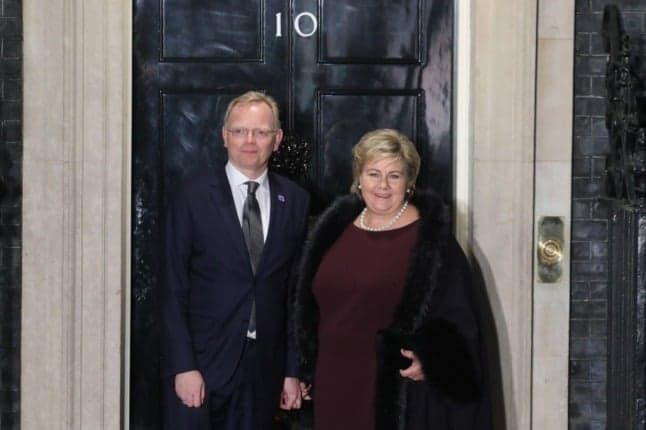Norway and UK strike post-Brexit trade deal

Norway and the United Kingdom have struck an agreement on a free trade deal, the Norwegian government announced on Friday.
Negotiations over the agreement have been ongoing since last summer, and the Norwegian government said that the deal is the largest free trade agreement Norway has entered into, outside of the EEA agreement.
"The agreement entails a continuation of all previous tariff preferences for seafood and improved market access for white fish, shrimp, and several other products," the Ministry of Trade and Industry said in a statement.
One of the sticking points of the negotiations was Norway wanting more access to sell seafood in the UK, while the UK wanted more access to sell agricultural products like cheese.
The latter was a problem due to Norway having import protection against agricultural goods.
"This agreement secures Norwegian jobs and value creation and marks an important step forward in our relationship with the UK after Brexit. This is a long-term agreement, which at the same time helps to accelerate the Norwegian economy," Prime Minister Erna Solberg said in a statement.
The United Kingdom is Norway's second most important single market, after the EU. In 2020 Norwegian companies exported goods worth 135 billion kroner to the UK and imported around 42 billion kroner of goods from the UK.
Norway has given Britain 26 quotas on agricultural products, but not for mutton and beef. The agreement does not increase the UK's cheese quotas, state broadcaster NRK have reported.
The agreement will still need to be signed by both the Norwegian and UK parliament.
Comments
See Also
Negotiations over the agreement have been ongoing since last summer, and the Norwegian government said that the deal is the largest free trade agreement Norway has entered into, outside of the EEA agreement.
"The agreement entails a continuation of all previous tariff preferences for seafood and improved market access for white fish, shrimp, and several other products," the Ministry of Trade and Industry said in a statement.
One of the sticking points of the negotiations was Norway wanting more access to sell seafood in the UK, while the UK wanted more access to sell agricultural products like cheese.
The latter was a problem due to Norway having import protection against agricultural goods.
"This agreement secures Norwegian jobs and value creation and marks an important step forward in our relationship with the UK after Brexit. This is a long-term agreement, which at the same time helps to accelerate the Norwegian economy," Prime Minister Erna Solberg said in a statement.
The United Kingdom is Norway's second most important single market, after the EU. In 2020 Norwegian companies exported goods worth 135 billion kroner to the UK and imported around 42 billion kroner of goods from the UK.
Norway has given Britain 26 quotas on agricultural products, but not for mutton and beef. The agreement does not increase the UK's cheese quotas, state broadcaster NRK have reported.
The agreement will still need to be signed by both the Norwegian and UK parliament.
Join the conversation in our comments section below. Share your own views and experience and if you have a question or suggestion for our journalists then email us at [email protected].
Please keep comments civil, constructive and on topic – and make sure to read our terms of use before getting involved.
Please log in here to leave a comment.